
We kindly inform you that, as long as the subject affiliation of our 300.000+ articles is in progress, you might get unsufficient or no results on your third level or second level search. In this case, please broaden your search criteria.

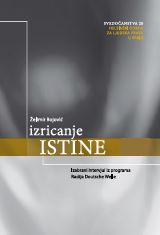
Interview by Želimir Bojević, with: 1. Bošković, Aleksandar 2. Popov, Nebojša 3. Radovanović, Dobrivoje 4. Veljak, Lino 5. Zajović, Staša 6. Stanovčić, Vojislav 7. Golubović, Zagorka 8. Gruden, Tamara 9. Arsenijević, Vladimir 10. Bogosavljević, Srđan 11. Đorđević, Mirko 12. Lukić, Svetlana 13. Gredelj, Stjepan 14. Simović-Hiber, Ivana 15. Hellman, Matias 16. Lučić-Čavić, Milica 17. Resanović, Aleksandar 18. Biserko, Sonja 19. Savić, Obrad 20. Kandić , Nataša 21. Popović, Đorđe 22. Kovačević-Vučo, Biljana 23. Mlađenović, Lepa 24. David, Filip 25. Perović, Latinka 26. Milosavljević, Olivera 27. Krmpotić, Vesna 28. Milić, Jelena 29. Prpa, Branka 30. Singer, Aca 31. Kovačević, Živorad 32. Janjić, Dušan 33. Pantić, Danijel 34. Barać, Verica 35. Kljajić-Imširović, Jelka 36. Gavanski, Bogdan 37. Matić, Jovanka 38. Tešanović, Jasmina 39. Knežević, Ana 40. Blagojević, Marina 41. Srbljanović, Biljana 42. Jevremović, Zorica
More...
Interviews by Želimir Bojević, with: 1. Goati, Vladimir 2. Gojković, Drinka 3. Milosavljević, Bogoljub 4. Mrvić-Petrović, Nataša 5. Šehić, Vehid 6. Nenadić, Nemanja 7. Ahel, Ivan 8. Ranković, Vera 9. Vujadinović, Dragica 10. Tošić, Desimir 11. Perović, Latinka 12. Cetinić, Goran 13. Samardžić, Nikola 14. Hadžić, Miroslav 15. Golubović, Zagorka 16. Minić, Jelica 17. Stojanović, Dubravka 18. Trkulja, Jovica 19. Mappes-Niediek, Norbert 20. Mitrović, Andrej 21. Radić, Radmila 22. Stevanović, Aleksandar 23. Mihailović, Srećko 24. Kuljić, Todor 25. Milenov, Alexandra 26. Delević-Đilas, Milica 27. Beč-Neumann, Janja 28. Kovačević, Marko 29. Trgovčević, Ljubinka 30. Prokić, Nenad 31. Biserko, Sonja 32. Popović, Srđa 33. Stamenković, Stojan 34. Kandić , Nataša 35. Miočinović, Mirjana 36. Stojiljković, Zoran 37. Prokopijević, Miroslav 38. Bogosavljević, Srđan 39. Kovacs-Cerović, Tünde 40. Milivojević, Snježana 41. Vodinelić, Vladimir V. 42. Đogović, Saša 43. Čupić, Čedomir 44. Podunavac, Milan 45. Lukić, Svetlana 46. Vučo, Aleksandar 47. Rak, Pavle 48. Popović-Obradović, Olga 49. Nosov, Andrej 50. Radunović, Desanka 51. Lazić, Mladen 52. Bugarski, Ranko 53. Korać, Nada 54. Rajčić, Biserka 55. Nikolić-Solomon, Dragana 56. Kovačević-Vučo, Biljana 57. Vukomanović, Milan 58. Bugarinović, Nebojša 59. Lilić, Stevan 60. Lukšić-Orlandić, Tamara 61. Timotić, Milorad 62. Stojanović, Lazar 63. Baucal, Aleksandar 64. Milić, Jelena 65. Havelka, Nenad 66. Jakšić, Božidar 67. Lyon, James 68. Ivanišević , Bogdan 69. Licht, Sonja 70. Stambolović, Vuk 71. Rajić, Ljubiša 72. Rakić-Vodinelić, Vesna 73. Daničić, Richard 74. Petrović, Vesna 75. Gajin, Saša 76. Šikman, Siniša 77. Jovanović, Ivan 78. Todorović, Dragoljub 79. Pančić, Teofil 80. Nikolić-Ristanović, Vesna 81. Čanak, Branislav 82. Jevremović, Petar 83. Barać, Verica 84. Ilić, Mirko 85. Matković, Gordana 86. Miletić, Goran 87. Turajlić, Srbijanka 88. Jauković, Milena 89. Miljanić, Ana 90. Vejvoda, Ivan 91. Trifunović, Zorica 92. Gačić-Bradić, Dušanka 93. Popadić, Dragan 94. Bjelić, Dušan Ilija 95. Logar, Svetlana 96. Mandić-Rigonat, Tanja 97. Savić, Obrad 98. Toma, Marijana 99. Jovanović, Miroslav 100. Svilanović, Goran
More...
This volume, Intellectuals and War, follows on the heels of last year’s publication of Another Serbia. Like the latter, it is the result of the work of the Belgrade Circle. As the reader will recall, Another Serbia is a collection of over eighty talks given by members of this association of independent intellectuals and their guests, during ten of the sessions of the Belgrade Circle held every Saturday from the beginning of April to the end of June 1992. Intellectuals and War brings together some fifty texts, which were presented as part of the series »Intellectuals and War« organized every other week, for ten sessions from the beginning of October 1992 until the end of February 1993. At a time when every call for peace, national tolerance, and liberal democracy was being confronted with scorn, disdain, and open ridicule; at a time, that is, when even the most cautious doubts about the utility of the war, which might deflate the state mythology were being denounced as acts of treason committed by slanderers of the National Idea, the Belgrade Circle organized the thematic series, »Another Serbia« and introduced itself to the domestic public as one of the truly rare associations (not to mention political parties, the few exceptions not withstanding) whose members refused on principle to contribute to the destruction of other nations and the demise of their own. With this series and, particularly, with the publication of our book by the same name, the expression »Another Serbia« became a motto for all those who sooner or later came to see the dangers of the nationalist policies of the past five or more years. Unfortunately, many of the dark forebodings expressed in that first series proved to be true. With tragedies mounting at an alarming rate, many words that then sounded very strong, sometimes even, strident, have become but mild reproaches today. Words that once, only a year ago, were just short of blasphemy, have long since become commonplace in the mildest critical discourse in which almost everyone engages. Yet, in looking through the pages of Another Serbia today, one issue emerges from a number of the contributed works that still has not permeated public consciousness deeply enough and has only with great difficulty found its way into the conscience of those individuals to whom it directly refers. This is, of course, the matter of the responsibility of intellectuals for spreading national intolerance, inflaming hatred, advocating war, and – eventually – for instigating crimes and barbaric destruction and causing the isolation, poverty, denigration and scorn which has since come our way. With this in mind, the Belgrade Circle, as an association of – to repeat – independent intellectuals, decided to organize its second thematic series of discussions around this sensitive and uncomfortable question, which is often protected by taboo. The Belgrade Circle did not act impetuously in calling for an open examination of the role of public-opinion makers in the Yugoslav tragedy. Nor did it do so only after having seen the tragic results of conspicuous blunders by writers, scholars, and religious figures in irresponsible national mythmaking or – worse – in open incitement to war. Such a decision was part of the original motivation guiding the future founders of the Circle. Long before the disintegration of the country and before borders were redrawn, territory occupied and people expelled from their homes, they witnessed a number of their colleagues working as free agents or, more often, as institutional propagandists, dutifully reviving national myths, recounting the victims of pats years as if infatuated with death, reworking the ideology of land and blood and skilfully explaining the need for the South Slavic peoples to »separate« from one another once and for all. Seeing this, it became clear to the future members of the Belgrade Circle that it would not be long before these words were turned into deeds. The common denominator for the some twenty philosophers, sociologists, scientists, artists, and journalists who joined together in the Belgrade Circle was, in fact, the decisive refusal to participate in such undignified activities, which could only end in the horrors of war. In its founding Act, and later in number of public statements and individual appearances by its members, the Circle pointed to the responsibility of the »national intelligentsia« and »national institutions« for war and condemned their abuse of public speech. Although against political trials as a matter of principle, the Belgrade Circle argued in its first public statement that not only should politicians, military leaders, and those directly involved in executing their policies be held accountable for their deeds, but also intellectuals responsible for inciting war and causing crimes against humanity, the destruction of cultural and historical treasures, massive displacement of populations and the exile of numerous distinguished creative figures, and the involuntary flight of educated young people. The fact that it was precisely those individuals who given the nature of their work, should have been among our ranks, but chose instead to put their talents, knowledge, and reputation in the service of legitimising a new collectivism, who were the first to poke fun at the Circle and attack it with angry, even threatening messages made it convincingly clear that this important initiative was directed to the right address. At the crucial moment when the class-based identity of society began to collapse from within, these intellectuals, rather then putting their strength and authority into the democratic enlightenment of an apathetic citizenry actively helped to enthrone another new unifying principle, a new unio mistica which would, this time, be based on an artificially awakened and stimulated national identity. Thanks largely to these efforts, the opportunity to become a society of free individuals who act as autonomous citizens in the political sphere and not as anonymous members of the one and only Class, on Nation was again – and, again for a long time – gambled away. Put simply and crudely: once again, »ideologues«, »clerics«, and »guard dogs« have sold us a bill of goods. Few or the participants in the series »Intellectuals and War« were prepared to say that all »national intellectuals« were guided by evil intentions, hatred toward other peoples, vicious greed, futile craving for fame and honour, or the desire to gain the favour of the new/old rulers. It was clear to our authors that there were honest and intelligent people among these »national intellectuals« who sincerely believed that after the fall of the »old regime« it was more important to resolve the national question than to work for the establishment of parliamentary democracy. Reality – as is most often the case – provided them with a real basis for dissatisfaction. However, just as the framers of the idea of the social revolution before them, they turned to the implementation of the national revolution, without paying attention to the means those contracted do to the job – nurtured as they were in our rich tradition – would more than likely use. Thus, it is hard to resist the conclusion that the war began in words. Any rational observer of the now distant events could reasonably have expected the abbreviated series of exchanges between abstract ideas and concrete acts to turn easily and rapidly into bullets. After all, doesn’t the saying go: the pen is mightier than the sword!? A majority of the authors contributing to this volume, share the belief that if intellectuals – who have since become peace advocates – are now amazed and horrified by the sea of spilled blood, the ruined cities and villages, the rivers of displaced and uprooted people, and the previously unimaginable faschisation, impoverishment, and criminalisation of society, they must – if nothing else – face up to their own professional and moral responsibility for this. But this is a question of individual conscience which no one may or should pas a judgment. Some of the text, however, express the belief that another kind of responsibility – one that presumes more tangible consequences than merely having to confront oneself – must surely fall on the shoulders of that »portrait gallery« of our intellectual guard who have consciously advocated war and misted the people, captivating them with otherworldly messages, promising them the heavenly city, submerging them into the past, offering them dignity through force, and turning them away from the most natural desire to live a better and happier life with Others rather than in isolation from the outside world, imprisoned by self-love. One moment openly, the next moment covertly, they supported the consolidation of an authoritarian and indifferent regime, which would carry out the dirty work for them and for the greater glory of the Nation. They graciously allowed the forces of evil to strike, always ready to put the intellectuals’ most daring plans into action. Sometimes participating directly in the government, but more frequently, acting in the shadows as advisors to the absolute ruler and his priests and in collusion with our Volksgeist, these intellectuals were not prepared to take a stand at those moments when the people appeared to have come to their senses. They introduced even greater discord into the already confused political scene as they entered into the ranks of political parties that had the appearance of becoming democratic. Through both their silence and action, they allowed the uneducated electoral body to surrender itself to the one and only real leader. With these texts in front of us, it is tempting to outline a series of »generic-types«, that is, to construct a certain number of »ideal types« from among our national intellectuals. It is easy to understand those readers who would be happy with a string of unique caricature-like portraits. We have merely to think about all those crazed painters, poets of hearth and home, ominous prophets, patented demystifyers of planetary conspiracies and experts in deconstructing the »new world order«, ethno geneticists and amateur historians who trace their nation’s roots to ancient, even prehistoric times, former Marxists who find solace for their collapsed ideology in the »sweet joy of belonging« to the Nation, indefatigable drafters of geopolitical maps, and journalists and columnists who have persistently presented our unsophisticated readers and television audiences with an up side down picture of history and the world. But for now, let’s just keep these in mind: as, in this brief introduction we cannot even hope to sketch out such a typology, much less, to take on a detailed study of some prominent cases. What we can do is hope that a future systematic examination of the role of intellectuals in the wars we are going through will enable us to arrive at an answer to the question posed by the authors of this volume. They themselves have not been motivated by the ambition to offer an answer now and this motivation could hardly be sad to be common denominator among the various texts, which differ both in genre and in the opinions they present. As in Another Serbia, the contributors to Intellectuals and War have their own views and are alone responsible for their words.
More...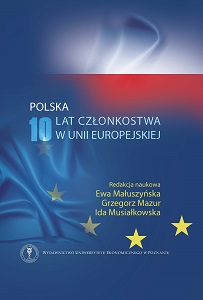
W artykule dokonano analizy "Krajowego programu działań na rzecz równego traktowania na lata 2013–2016", przyjętego przez rząd RP w 2013 r. Celem jest określenie ramy konceptualnej, na jakiej wspiera się polityka równościowa i antydyskryminacyjna polskiego rządu (policy frame). Badanie zmierza do określenia elementów tej ramy, a w szczególności pokazania, w jaki sposób polski rząd, formułując swoją politykę równościową i antydyskryminacyjną, postrzega, nazywa i strukturalizuje porządek społeczny, jak postrzega aktorów społecznych i relacje między nimi, jakie z tym postrzeganiem związane są wartości, idee oraz interesy.
More...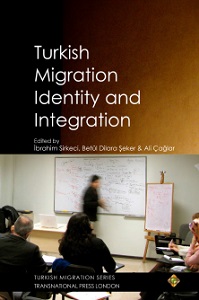
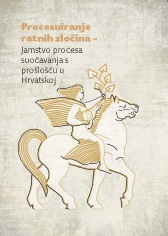
Nedostatak potpore državnih institucija, neprepoznavanje i nepriznavanje patnje žrtava seksualnog zlostavljanja u društvu te društvena stigmatizacija, često dovode do toga da same žrtve negiraju da su bile seksualno zlostavljane. U trenucima pisanja ove knjige, broj silovanih i seksualno zlostavljanih osoba na teritoriju Republike Hrvatske tijekom Domovinskog rata i dalje je nepoznat. Zabilježeno je 20-ak kaznenih predmeta za ratne zločine u kojima je dio inkriminacija bio vezan uza silovanje ili seksualno zlostavljanje. Prema navodima Državnog odvjetništva RH, Ministarstvo unutarnjih poslova utvrdilo je da postoji sumnja da su tijekom Domovinskog rata nad 182 žrtve mogli biti počinjeni ratni zločini silovanjem ili drugim oblicima seksualnog zlostavljanja. Dodatnim provjerama utvrđeno je da su neke od potencijalnih žrtava u međuvremenu preminule, neke su državnim odvjetnicima izjavile da nad njima nije bilo počinjeno silovanje niti drugi oblik seksualnog zlostavljanja koje bi bilo moguće podvesti pod neko od obilježja kaznenog djela ratnog zločina počinjenog nečovječnim postupanjem, a neke od potencijalnih žrtava otklonile su svaku mogućnost davanja iskaza. Prema evidencijama nadležnih državnih odvjetništava, ratni zločin počinjen silovanjem sigurno je počinjen na štetu samo 57 žrtava, pretežno žena. Od toga su u odnosu na 36 žrtava pokrenuti kazneni postupci koji su u različitim stadijima. Zbog kaznenog djela ratnog zločina počinjenog silovanjem osuđeno je 15 počinitelja.
More...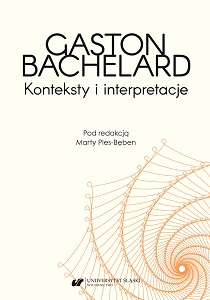
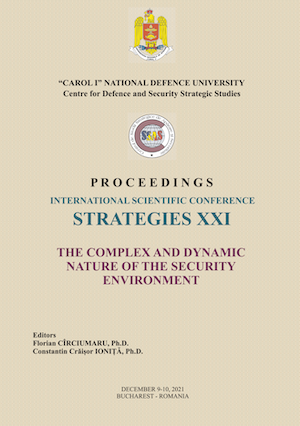
At present, when pandemic enters a new phase, the geopolitical confrontation between the adherents of unipolar and multipolar international security systems takes its new impetus. Besides the pandemic restrictions used widely as a tool of political pressure, the LGBT issue recently gained new importance. LGBTQ activists that announced pride in the Georgian capital have not taken to the main avenue of Tbilisi out of fears of violence. Instead,anti-LGBTQ groups' representatives used physical violence against media representatives because of their perceived pro-LGBTQ/Western stance. As it is known LGBTQ issue has become quite divisive not only in Georgia but in EU member countries. The present paper discusses developments in Georgia and the post-Soviet area as an example of a small proxy state of the former Soviet Union as an arena of struggle between the West and East on values shared by the most Western democracies.
More...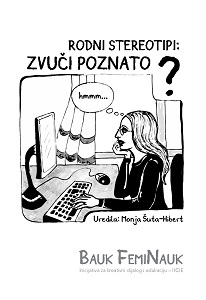
Knjiga „Rodni stereotipi: Zvuči poznato?“ predstavlja veoma korisnu i interesantnu publikaciju koja nas suočava s predrasudama kreiranim oko pojmova roda i feminizma. U dvanaest tekstova prikazano je kako rodni stereotipi egzistiraju unutar društvenih i ideoloških matrica, ali i kako oni, u svakodnevnim i konkretnim situacijama, postaju sastavnim dijelom naših vlastitih zabluda. Realnost i konkretna patnja, koje se mogu prepoznati u brojnim navedenim životnim situacijama i pričama, djeluju kao žestok podsjetnik na teške i bolne sudbine žena na ovim prostorima, ali i kao koherentan i stručan materijal za edukaciju u oblasti rodnih studija i proučavanja rodnih stereotipa. U tom kontekstu, vrijednost ove knjige jest što na jednostavan način, prikazujući realne situacije, uključuje čitaoce u prepoznavanje takvih situacija te ih ujedno senzibilizira na pružanje otpora prihvaćenim i etabliranim rodnim stereotipima.
More...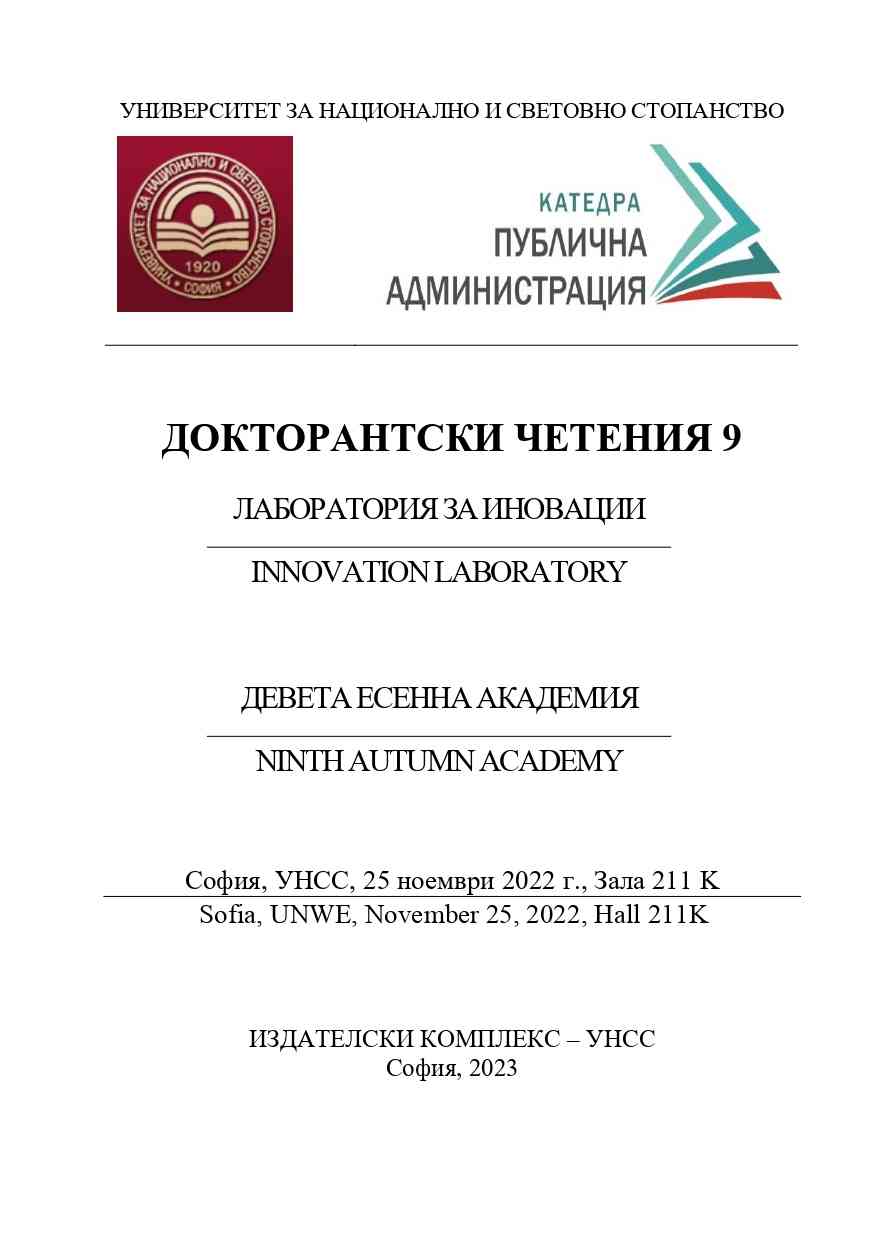
This article will examine the participation of women in the labor market. For this purpose, it will be clarified what the labor market is according to different authors. Special attention will be paid to what its essence is. It will be clarified when women enter the labor market and what their access to it is. The subject of the article will also be the difficulties faced by women in the labor market. The present article does not claim to be exhaustive and is oriented towards presenting basic knowledge about the labor market.
More...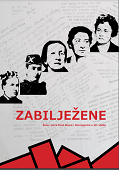
Iako su priče o bosanskim kraljicama brojne i interesantne, u ovom tekstu će biti predstavljene samo dvije, i to one čije sudbine sadrže u sebi elemente od kojih neki i danas bitno određuju žensku priču. Prva je kraljica Mara Jelena (1447-1500), a druga Esma sultanija (1726–1788).
More...
U ovom poglavlju ukratko će biti predstavljen period od početka Prvog svjetskog rata do početka Drugog svjetskog rata u Jugoslaviji 1941. godine u kontekstu djelovanja žena. Na samom početku dat je kratak pregled historijsko-društvenih okolnosti, a nakon toga prikaz ženskog udruživanja, prava za koja su se zalagale te faktora koji su otežavali ili donekle olakšavali njihovo djelovanje. Također je dat osvrt na ekonomska, socijalna, obrazovna, građanska i ostala prava žena u ovom periodu, kao i na prilike u književnosti i pozorišnoj umjetnosti. U ovom poglavlju se prilikama u Prvom svjetskom ratu gotovo uopće ne bavimo uslijed nedostatka literature o tom periodu. Kako ne želimo da vrijeme izbriše i njihove biografije i doprinose, na kraju poglavlja navodimo sasvim kratko informacije o njihovom životu i radu, unaprijed žaleći što mnoge žene ovog perioda ni na stranicama ove knjige neće naći svoje mjesto.
More...
Ovo poglavlje se kontekstualno osvrće na društvene, ekonomske, političke i kulturne prilike, te svakodnevni život u Socijalističkoj Republici Bosni i Hercegovini (SRBiH), odnosno Socijalističkoj Federativnoj Republici Jugoslaviji (SFRJ) po završetku Drugog svjetskog rata pa do kraja osamdesetih godina, sa posebnim naglaskom na žensko pitanje i položaj žena. Pažnja će se posvetiti ranim socijalističkim naporima i zakonodavnim mjerama za ravnopravnost spolova i emancipaciju žena, kao i cjelokupnom društvenom napretku za vrijeme socijalističke vlasti. Pitanja pozitivnih i negativnih implikacija ovog napretka po život žena propitivat će se iz feminističke perspektive. Za čim su žene žudjele, čemu su stremile, čemu se nadale i za šta se borile, da li su uspjele dosegnuti ravnopravnost sa muškarcima u periodu bratstva i jedinstva – samo su neka od pitanja kojima će se posvetiti posebna pažnja. Kako je pitanje obrazovanja žena bilo posebno važno u ovom periodu, ovoj temi će se posvetiti posebna pažnja, kao i doprinosu žena nauci. Pregled prilika kad su kultura i umjetnost u pitanju, posebno književnost, slikarstvo, pozorište i film daje se kroz predstavljanje rada određenih žena u ovim oblastima. Napominjemo da su i u ovom poglavlju spomenute samo neke od žena koje su se svojim djelima, radom i ostvarenjima istakle u toku socijalističkog perioda BiH.
More...
Ovo poglavlje će se baviti položajem žena u periodu 1992–1995. Ovdje će biti predstavljene uloge žena u različitim oblastima djelovanja, kao što je vojska, civilna odbrana, obrazovanje, medicina, umjetnost, politika, ali i žene kao ratne zločinke, te žene kao žrtve silovanja.
More...
Započeto razvodnjavanje i rasplinjavanje ženskih prava i utjecaja postignutih izlaskom žena iz privatne u javnu sferu tokom rata nastavilo se u postsocijalističkoj BiH. Tranzicija, izgradnja države, postdejtonski kontekst, kvote – nacionalne, teritorijalne, rodne, demokratizacija i ostali socijalni ugovori pokazali su se vrlo rodno obojeni kada se govori o restrukturi ženskih pozicija. U procesima ekonomske reintegracije, reartikulaciji radnih prava i ostvarivanja političke moći, mjesto i uloga žene nastavlja retrogradni trend započet sa posljednjim ratom. Glavni neprijatelji feminizma u postjugoslavenskom prostoru su državne nacionalne ideologije, na impresivan način paralelne u svome diskursu, postupcima, stavu prema ženama.
More...